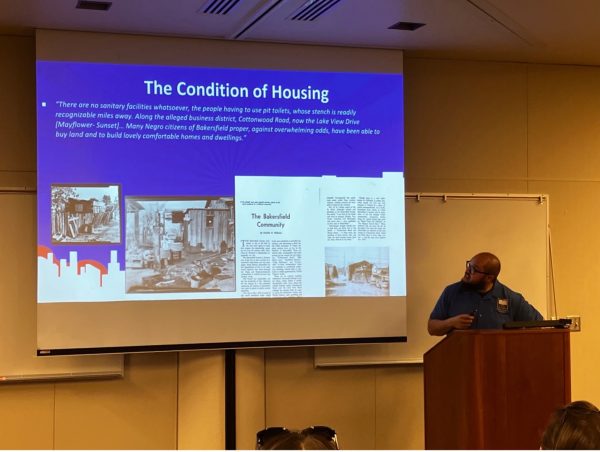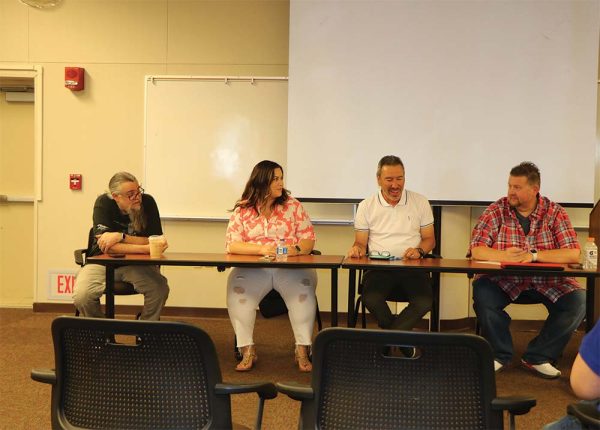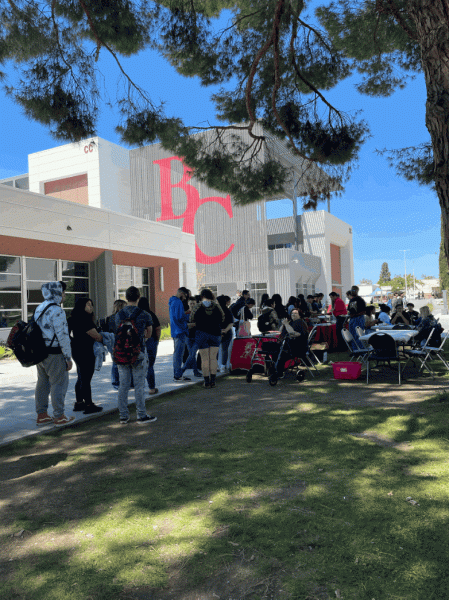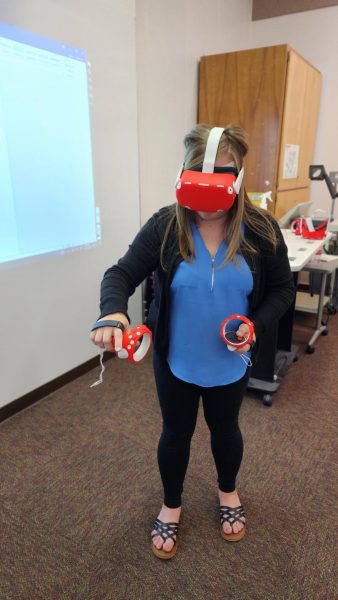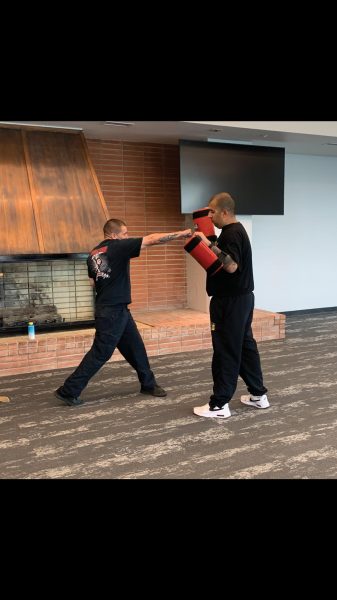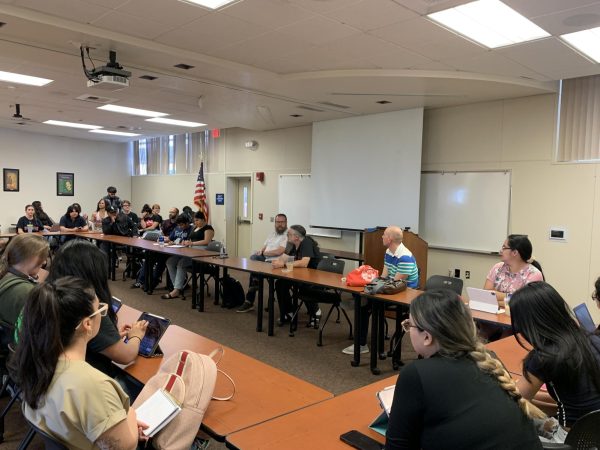Gadfly discusses a hot topic
October 21, 2015
Students gathered for a discussion on marriage equality held in the Gadfly Café, located in the Bakersfield College Levan Center on Oct. 13.
The discussion started with: “Does same-sex marriage threaten religious beliefs?”
Same-sex marriage has always been a controversial topic especially when it comes to religion. Some people will argue that it’s considered freedom of speech and others will argue that it’s against religious beliefs.
The marriage equality laws establish equal protection regardless of sexually orientation, choice or civil need. Also under the law, to receive your marriage license you have to meet qualifications that state you are eligible for this license.
There are people who own private businesses and choose to not work for certain people because they don’t agree on how that person identifies, due to religious beliefs. Recently there have been cases around the world that deal with business owners refusing services to a same-sex union.
When it comes to publicly owned businesses, it becomes difficult to set a boundary on whether it’s right to refuse service because it doesn’t meet the workers religious beliefs.
Philosophy instructor Rene Trujillo said, “It’s one thing to say that a private business owner could act on their religious beliefs; it’s quite a different thing to say that people who own public places should have the same right to with hold treatment under the law.”
A recent popular case on same-sex marriage deals with the publicly elected official and chief clerk for the county in Kentucky, Kim Davis.
She thought it was fine to deny a couple their marriage license because they were of same sex and her religious belief was against that. This situation angered people because recently equality has become a highly accepted topic in America and for someone to deny a marriage license for the same-sex couple is breaking down that equality.
Some students argued that when Davis swore into oath for that profession, she should have known what she was getting involved in, especially now when couples are open about gay marriage.
They argued that when you accept that profession it’s your job to fulfill that duty and include equal rights along with that. Another argued that Davis could have felt that if she put her name to approve the license, it would had made it seem like she agreed with same-sex marriage, and she didn’t want to chance her religion looking down upon her.
Trujillo said, “People within a faith certainly interpret their duties and responsibilities of the meaning of their faith variously, the other thing is whether people within that faith feel compelled to make judgments of right and wrong for them or others.”
The discussion went on to different conflicts in people’s lives such as making a choice when it comes to religion and profession. If you can’t go against your religion you might look at it as not fully serving the church. Then when it comes to your career you have to provide equality to each person you work with. With this you can’t win in both; you have to make a choice and that is what Davis did.
It ended on the topic of breaking laws. When it comes to laws everyone has to obey them the correct way.
This doesn’t mean that a person gets to choose whether or not they want to – it’s an order. If we let people break the law from time to time because of certain beliefs everyone else would feel like breaking other laws.
Students debated on their different opinions on the topic and connected with other students who either felt the same way or different.
A final discussion will be held in November on an issue of Racism in America at the Levan Center at 12:30 p.m.





